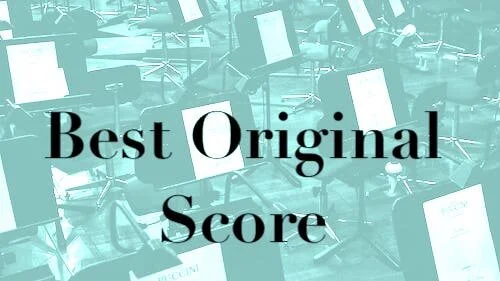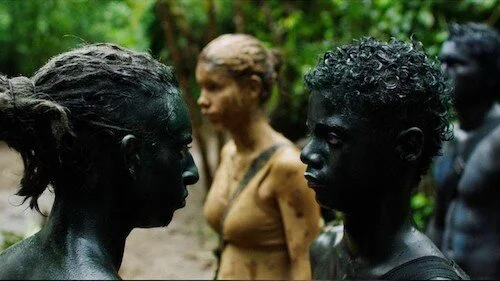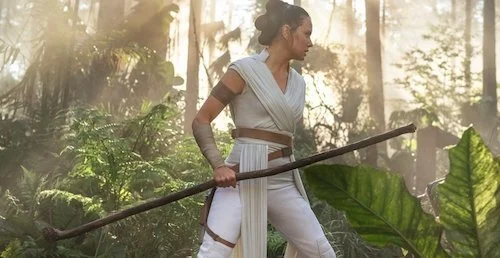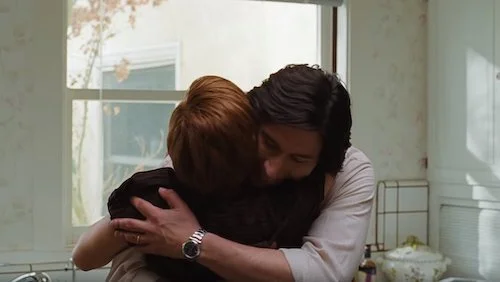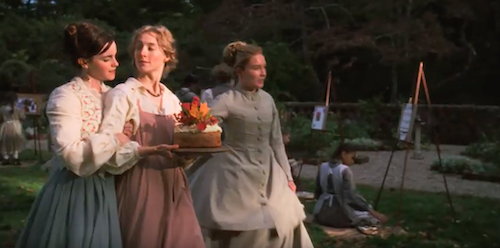Best Original Score: Ranking Every Oscar Nominee
A song has one scene to shine and make a statement. A score — despite being composed of individual tracks — needs to set the tone for an entire film. Composers had enough of a task years ago. Now, with the implementation of varying types of compositions, where do you even start? Do you go the traditional way with an orchestra, or do you compose something different (electronic minimalism, a jazz band quartet, or a screeching guitar)? If you use old methods, do you change them up at all so they don’t sound tired? The Academy did a great job picking five nominees, and there may be only a couple of films that could have fit right in here that are missing. Otherwise, the Oscars selected well. We think all of the five nominees are solid in their own right. Alas, we still must rank them.
Here are your nominees for Best Original Score, ranked from worst to best.
Biggest Snub: Monos-Mica Levi
Mica Levi has emerged as one of her generation’s strongest composers in just three scores. Her music for Monos is half the reason why the film is nauseating. Her ability to create turmoil with empty spaces and erupting noise is a special talent. Levi knows how to craft sounds that have never been heard before, even with traditional instruments. It’s as if she obsessively works in a room alone, slapping noises and melodies together with effects and edits until they’re unrecognizable as familiar sounds. In Monos, her songs are guaranteed to stress you out and creep you beyond your limits.
5. Star Wars: The Rise of Skywalker: John Williams
Obviously, John Williams is a legend, and his scores for the Star Wars franchise are iconic for a reason. They’re immediately recognizable, can set the tone of this fabricated universe, and hook you in seconds. As The Rise of Skywalker is to be his final Star Wars score, this feels like a tribute by the Academy to acknowledge all of his work. There’s obviously nothing bad here: just familiar. We’re placing this low because of the newer musical ideas the other films have to offer, but don’t assume that any attempt Williams makes with a Star Wars film is anything less than fascinating.
Our review of Star Wars: The Rise of Skywalker
4. Marriage Story: Randy Newman
Everyone’s familiar with Randy Newman’s New-Yorkian easy going swagger in his tunes (score or song wise), and his NYC sound is blatantly important for Marriage Story’s identity crisis. The score manages to set a tone for the film’s blending of quirky humour and heightened realism. When Newman wants to get dramatic, his music only gets a little bit more moving, and he allows the performers on screen to carry the heavy lifting. It’s a nice touch, to allow the film to shine in the ways that it is meant to. As a provider of some sort of semblance in a film all about falling apart, Newman’s musical voice is very welcome here.
Our review of Marriage Story
3. Little Women: Alexandre Desplat
Alexandre Desplat’s always gunning for awards season gold now, huh? His Little Women score does not disappoint. He injects his usual musical whimsy into the mix, to allow the March girls’ imaginations and innocences to bubble off the screen and into your ears. When Greta Gerwig’s adaptation demands a bit more of an emotional oomph, Desplat is willing to put out some of his more vulnerable writing at the forefront. Both fun and engaging, Desplat’s Little Women score is some of his finest work yet.
Our review of Little Women
2. 1917: Thomas Newman
Out of the two Newman cousins this year, Thomas is our pick as 2019’s champion. His partnership with Sam Mendes has developed into a strong bond (no pun intended), which benefits 1917 greatly. A single-shot film feels more demanding of its score, because a lack of cuts may make a viewer more aware of everything happening at every moment. Luckily, Newman’s score is passionate, triumphant, and masterful on a traditional level. As far as how signature score compositions go, Newman’s 1917 work is the best of 2019, and was able to wring out some new emotions out of orchestrations we’ve all heard before.
Our review of 1917
1. Joker: Hildur Guðnadóttir
Joker may be lopsided between its strengths and weaknesses, but one crucial element is Hildur Guðnadóttir’s brilliant score. Squashed between extreme minimalism, and maximalist noise, Guðnadóttir captures the manic isolation of a patient-turned-delinquent. You may almost feel angry when a popular song is pasted on screen, when you could be hearing another Guðnadóttir gem to underscore a moment. The clashing cymbals that feel like footsteps running towards you. The pounding bass drum feeling like a dying heartbeat. The haunting strings that feel neither joyful or sad. All of these sounds on their own are effective enough. When they come together, we finally understand Arthur Fleck’s shattered psyche as it is pieced together. No question, Hildur Guðnadóttir’s score is an achievement to behold, and one of the greatest reasons why Joker succeeds nearly as much as it does.
Our review of Joker
Who we want to win: Anyone is fine by us. These are all worthy nominees. To supply an answer, we’re team Hildur Guðnadóttir.
Who we think will win: This is likely between Hildur Guðnadóttir and Thomas Newman. We’re picking Guðnadóttir, not just because of her recent Golden Globe win, but the possibility that the Academy may want Joker to win another award to back up Joaquin Phoenix’s likely win (and justify eleven nominations).
Tune in tomorrow for our next Academy Award category! We’re reviewing every single nominee.
Andreas Babiolakis has a Masters degree in Film and Photography Preservation and Collections Management from Ryerson University, as well as a Bachelors degree in Cinema Studies from York University. His favourite times of year are the Criterion Collection flash sales and the annual Toronto International Film Festival.

